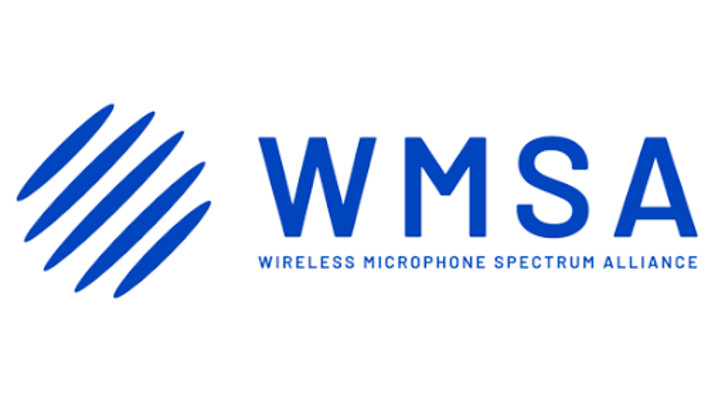RIAA Shifts From One Wreck to Another
The professional video industry's #1 source for news, trends and product and tech information. Sign up below.
You are now subscribed
Your newsletter sign-up was successful

It's easy to understand why the United States is losing ground in the race to build cost-effective broadband services across the nation. The latest reason: a trade group of longtime losers—the Recording Industry of America—wants Internet Service Providers (ISPs) to protect them from their own music customers.
The RIAA, who just can't seem to understand that the music industry is rapidly shifting to the Internet, announced recently it has abandoned the mass lawsuits it has been bringing against Internet users who it claims steal music. Since the RIAA has sued about 35,000 Internet users since 2003, one might shout: "Hallelujah, the nightmare is over!"
Unfortunately, these music piracy pests won't go away. Now they are soliciting the nation's ISPs to do their dirty work. RIAA lawyers will have the ISPs send warning notices to users they claim illegally download music files. If the user ignores the ISP, their service could be turned off.
THREE STRIKES...
Of course, the RIAA operates secretively like some kind of national security agency, refusing to say which ISPs are working with them. They like the imprimatur of government black ops for their tactics. Never admitting they were wrong, they also reserve the right to sue Internet users who ignore the ISP's warnings. And, of course, pending lawsuits will also continue.
Of course, asking ISPs to snitch on so-called music pirates is a mistake. It is as wrong as the original lawsuits, which have targeted dead people and a 13-year-old girl who knows little about computers. But such missteps haven't stopped these bullies.
The RIAA's lawsuits, according to the Electronic Frontier Foundation (EFF), have been "ineffective and unconstitutional." Fred von Lohmann, the EFF's senior staff attorney, said the trade group's campaign has been—by any measure—a failure. The lawsuits, he said, have not reduced unauthorized file-sharing and have not gotten a single artist paid.
Under its latest scheme—after an initial warning—the RIAA is asking ISPs to enforce a "three-strikes" policy: if music downloaders ignore two warning notices, the organization has asked the ISPs to suspend or cut off their Internet service.
The EFF's von Lohmann said one in five American Internet users is an active file-sharer.
"Does the recording industry really think that banning 20 percent of Americans from the Internet is the right answer? Do ISPs?" von Lohmann asked The Wall Street Journal. "Or will the millions of ISP warnings just give rise to more encrypted and anonymized file-sharing mechanisms, all the while getting no artists paid?"
Then, of course, there's the big question of whether ISPs will even support the RIAA.
SHOW ME THE MONEY
Most ISP call centers have poorly trained, outsourced representatives reading from pre-written scripts. Many can't fix the most basic user problems. It's hard to see these stressed out workers helping a third-party company track down phantom music thieves.
Cox Cable reported it already has the RIAA's system in place. It is emailing heavy P2P users with a warning and walling off Internet access for repeat offenders. Rarely—less than 1 percent of users—have been terminated due to such violations.
Ironically, Cox tells customers this is their responsibility under the Digital Millennium Copyright Act (DMCA), though—in reality—the DMCA requires no such thing. That threat, in itself, should be illegal, but Cox apparently knows as little as its customers about the law.
Other ISPs such as Verizon, Charter, and Sprint have enough trouble keeping up with their own networks, much less working for the RIAA to spread fear.
The owner of a small ISP—Bayou Internet and Communications in Monroe, La.—expects the RIAA to pay his company for help. Owner Jerry Scroggin said policing P2P users within his 10,000 customer base costs both time and money. It is just not worth it to protect music on the Internet, he said.
Each time Scroggin receives a notice asking him to disconnect a suspected file-sharer from his network, he sends the same reply. "I ask for the (RIAA's) billing address," he said. "Usually, I never hear back."
STAY OUT OF IT
ISPs should stay out of the policing of its users for any kind of activity. President Obama's new net neutrality initiative hopefully will deal with the issue once and for all. An ISP is a data pipeline and no more.
The decline of the music industry came with the rise of digital technology. A greedy group of recording executives resisted change. Their cause was lost because they were too slow to react to new digital distribution methods. Yet, the Bush administration tried to protect them for far too long.
Now, that era is over. Bush is history. If President Obama wants to build the best Internet system in the world for the United States, he will tell the RIAA, the MPAA, and trade organizations like them to get lost. It's a new era and time for new business models.
Frank Beacham is a New York City-based writer. Visit his Web site atwww.frankbeacham.comand his blog atwww.beachamjournal.com.
The professional video industry's #1 source for news, trends and product and tech information. Sign up below.
Frank Beacham is an independent writer based in New York.

